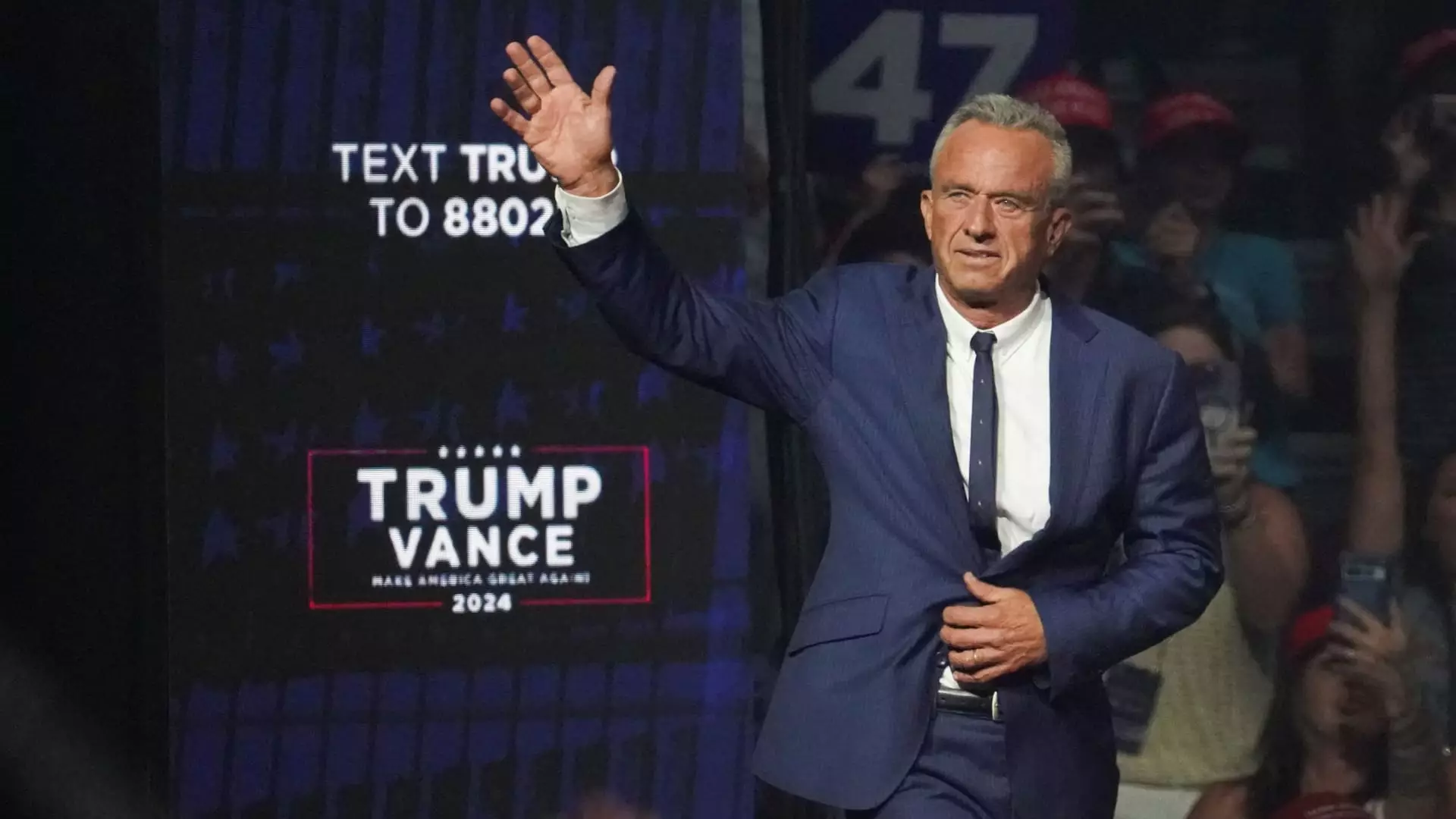Robert F. Kennedy Jr.’s decision to drop out of the independent White House bid and endorse former President Donald Trump was strategic, aiming towards boosting the Republican nominee’s chances in must-win battleground states. However, Kennedy’s plan to remove his name from swing-state ballots to avoid handing the election over to the Democrats has faced significant challenges. Despite his efforts to withdraw his name from ballots in North Carolina, Wisconsin, and Michigan, Kennedy remains stuck on the ballot in these crucial states. This situation significantly diminishes the potential electoral boost that Trump could have received from Kennedy’s exit.
Kennedy’s struggles to withdraw from the ballot are compounded by legal challenges in states like Michigan and North Carolina, where courts have rejected his attempts to remove his name. The inability to withdraw in Michigan, in particular, has limited Trump’s chances of gaining an advantage in these swing states. The latest polling data indicates that these three states are essential for Trump to secure a victory in a head-to-head contest against Vice President Kamala Harris. With Kennedy still on the ballot, the electoral landscape remains uncertain, and the expected boost for Trump has not materialized.
Kennedy’s endorsement could have been a game-changer for Trump’s electoral map, but the challenges faced in critical battleground states have undermined this strategy. While Kennedy’s withdrawal may benefit Trump outright in states like Arizona and Pennsylvania, the presence of his name on the ballot in Michigan, North Carolina, and Wisconsin has dampened the anticipated electoral boost for the Republican nominee. The impact of Kennedy’s continued presence on the ballot is evident in the narrowing of Trump’s lead in states like Nevada and Georgia, where polling suggests that his exit could have been more beneficial.
With only 63 days until Election Day, Kennedy’s influence on the campaign remains uncertain. While his endorsement could still play a role in shaping voter perceptions, the challenges faced in key battleground states have raised questions about the effectiveness of his electoral strategy. Trump’s hopes of rallying undecided voters through Kennedy’s support may face hurdles in states where his name remains on the ballot. As the race heats up, both campaigns will need to navigate the complexities of the electoral landscape to secure a victory in November.
Robert F. Kennedy Jr.’s electoral strategy has faced significant challenges, especially in key battleground states where his presence on the ballot has hindered Trump’s prospects. While his endorsement could still influence voter decisions, the legal battles and electoral complications have raised doubts about the effectiveness of his campaign. As the election approaches, both campaigns will need to adapt to the evolving electoral landscape to secure a victory in a closely contested race.


Leave a Reply